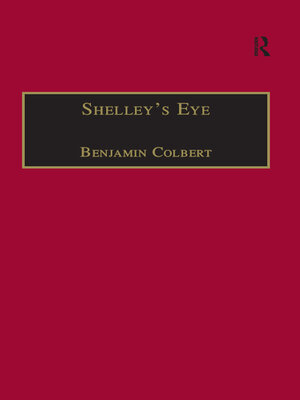Shelley's Eye
ebook ∣ Travel Writing and Aesthetic Vision · The Nineteenth Century Series
By Benjamin Colbert

Sign up to save your library
With an OverDrive account, you can save your favorite libraries for at-a-glance information about availability. Find out more about OverDrive accounts.
Find this title in Libby, the library reading app by OverDrive.



Search for a digital library with this title
Title found at these libraries:
| Library Name | Distance |
|---|---|
| Loading... |
Percy Bysshe Shelley joined the deluge of sightseers that poured onto the Continent after Napoleon's defeat in 1814, and over the next eight years Shelley followed major travelling trends, visiting Switzerland in 1816 and Italy from 1818. Shelley's Eye is the first study to address Shelley's participation in the travel culture of Post-Napoleonic Europe, and the first to consider Shelley as an important travel writer in his own right. This book is informed by original research on a wide range of period travel writings, including Mary Shelley and Shelley's neglected collaboration, History of a Six Weeks' Tour (1817), in which 'Mont Blanc' first appeared. Fully responsive to the culture of travel, Shelley's travel prose and poetry form fascinating conversations with major Romantic travellers like Byron, Wollstonecraft, and Wordsworth, as well as lesser-known but widely read travel writers of the day, including Morris Birkbeck, Charlotte Eaton, and John Chetwode Eustace. In this provocative study, Benjamin Colbert demonstrates how the Grand Tour remains a vital cultural metaphor for Shelley and his contemporaries, under pressure from mass travel and popular culture. Shelley's travel prose and 'visionary' poetry explore motives of perception underlying travel discourse and posit an authentic 'aesthetic vision' that reconfigures social, historical, and political meanings of 'sights' from the perspective of an ideal tourist-observer. Shelley's Eye offers a new perspective on Shelley's intellectual history. It is also a timely and important contribution to recent interdisciplinary scholarship that aims to re-evaluate Romantic idealism in the context of physical, experiential, or material cultural practices.







